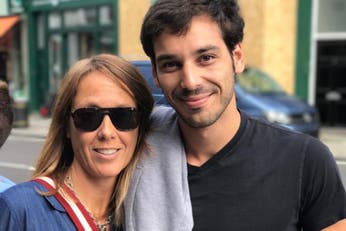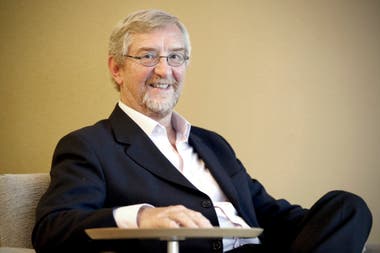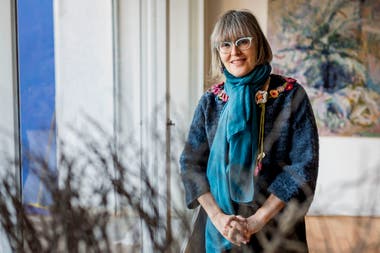There is no doubt about something: the pandemic is not only hitting the most vulnerable sectors with particular harshness, but it has exacerbated inequalities of very long drag.
In this context, the Si Foundation launches, together with Radio Metro and with the support of Telefé and the La Nación Foundation, a new Solidarity Mission. This is the fourteenth edition of an initiative that
seeks to collaborate with dining rooms, homes and community centers across the country
, and that during the quarantine he had no choice but to reinvent himself. Thus, from moving to calling listeners to approach a food donation in person, as has been done until this year, this Saturday the mission will have a virtual format for the first time. The appointment will be
from 10 a.m. to 8 p.m. on Metro 95.1 and
metro951.com: a special 10-hour broadcast where you will learn about different options to collaborate, the destination of the funds, the stories behind each community center and various artists and surprise guests.
“You can collaborate from all over the world. Wherever you are, you will be able to be part of this mission”, summarizes Manuel Lozano, founder of Fundación Sí, an organization that since 2012 works for social inclusion with a range of projects. The invitation is to enter the foundation’s website (already available for donations) and choose a donation kit, which will then be delivered to one of the beneficiary organizations. Since the quarantine began, Fundación Si has already distributed 578,286 kilos of food and 120,557 cleaning and hygiene items in
460 dining rooms in the 23 provinces of Argentina
. However, the demand grows day by day. “It is becoming more and more difficult for them to assist all the people who come,” says Lozano in dialogue with LA NACION.
-How is the reality of the more than 400 community spaces that they accompany from Fundación Si throughout the country today?
-They agree that demand increased. They had to adapt to the new context and they are delivering the food to eat at home or bags of food. In this way, it seeks to prevent people from meeting in the dining room and trying to sustain social isolation. These community spaces not only had a large increase in people to attend but they had to increase services: for example, the one that provided snacks, now also gives dinner or lunch; the one that opened from Monday to Friday, is opening seven days a week.
– What were the hardest “postcards” that this pandemic left you until now?
-How difficult. There are many, but I tell you two, one ugly and one pretty. I never forgot the call of a neighborhood hairdresser who did not have milk for her baby. Until isolation was decreed, she lived from her work, had already consumed what little she had saved and did not know what to do or how to ask. We all wish that no one has unmet basic needs and that everyone can live on the product of their work. When I heard her breaking that barrier of asking to feed her son, it was heartbreaking. It is more than clear that nobody likes to ask, but I think the first time you have to cross a very painful barrier. On the other hand, and because I think that you always have to find the good side of things, I think of Elizabeth, from a dining room in Ezeiza, who the first week that we called her to deliver her food told us that she had something and asked us to give it to her. remaining to another dining room. Or Alberto, who called him last week because we had to bring him a box of food and he told us that he had gotten a pig selling lavandin, that we donate it to another family.
-It is a particularly unforeseen, painful and challenging context. How did you adapt your programs to this reality?
-Challenging is definitely a word that defines it. No one has experienced such a situation worldwide. The first challenge was to adjust to reality. All projects had to be adapted. On the one hand, we had to reduce the number of volunteers as much as possible to try to keep as many people as possible at home. We organized a team with the youngest, without any risk factor and who were not in contact or in the care of people who did. The university residences that the foundation has for young people in rural areas are still open but with virtual classes, we had to take extra security measures, enhance the role of the tutors, and the young people made the isolation inside the residences. In the case of community centers, we had to stop the workshops with the children and focus more deeply on food assistance. As for the tours to assist people on the street, we changed all the dynamics and strengthened food assistance since, as bars and restaurants are closed, and as there are fewer neighbors on public roads, access to foods.
We put together a huge volunteer structure that allows us to work without the need for hired staff and for 100% of donations to go to the assigned destination.
Manuel Lozano, Si Foundation
-We Argentines usually have a solidarity muscle that is activated particularly in times of crisis. How do you evaluate the response of the citizens so far?
-It never ceases to excite and surprise me. We appreciate the trust of each person and company that accompanies us and that thanks fills us with responsibility. The best way to thank all those who continue to accompany us despite the crisis is to ensure the proper use of funds. On the one hand, looking for the best prices to make the most of the money, organizing a very federal distribution based on the needs of each community center and trying to reach the entire country, which is geographically enormous and that implies a double challenge. On the other hand, monitoring each community center with which we work to ensure transparency in the distribution of donations and their non-political use. We are very clear that it is money that does not belong to us, that people in an enormous act of trust give it to us so that we transform it into the necessary articles and send it to whoever needs it. With that responsibility is that we assume the investment of each donation that enters. That is why, from the beginning of the foundation, we have built a huge structure of volunteers that allows us to work without the need for hired staff and for 100% of donations to go to the assigned destination.
-What do you expect from the Solidarity Mission this Saturday?
-The mission is a moment super expected by everyone. Expectations are high because year after year people have accompanied us. Andy Kusnetzoff always tells it on the air: the first mission we helped a canteen, and it grew so much that last year we reached 295. Every year more than 40,000 people come to the event. We know that this time, being virtual, it will be a different mission, but the essence is intact and I trust that people will accompany us. The Metro and especially Andy, have become fundamental allies of the foundation and throughout the year they accompany us in each new initiative.
-This time it’s a completely different event.
-Yes in everything! It is a completely different mission because people will help from home. I always say that one of the great lessons I incorporated is to let reality lead the way and it is something we always try to capture at the foundation. Each project arose from listening to reality and exactly the same thing happens in the mission. The first missions were at the radio door, until at one point it was already impossible due to space and we moved to the Dorrego property. Today we have to adapt again and here we are.
Hopefully we understand that today more than ever we must be as loving as possible because we do not know the other’s history or what their situation is. Empathy is urgent.
Manuel Lozano, Si Foundation
-What reflection do you make about the teachings that this pandemic is leaving us?
-There are many. Hopefully we learn that we need to live much less than we think we need. And that, without a doubt, the most important thing does not lie in the material but in the links, with others and with ourselves. I hope we understand that no one is saved alone and learn to build a true community. If we see someone out on the street today, we do not know if it is because he is going to work, if he broke the isolation because his head was going to explode, because he was very distressed or because he broke the business that took a lifetime to put together. Hopefully we understand that today more than ever we must be as loving as possible because we do not know the other’s history or what their situation is. Empathy is urgent. Will we come out better? It will depend on each one of us. That is the biggest challenge and it is a personal challenge: to be able to capitalize this time of confinement in an opportunity of growth.
How to collaborate
Fundación Si: By entering the foundation’s website (already available for donations) you can choose a kit to donate, which will then be delivered to one of the beneficiary organizations.
Manuel Lozano: “Empathy is urgent. Today we must be as loving as possible”
01:05
ALSO
.
Publicado en el diario La Nación




